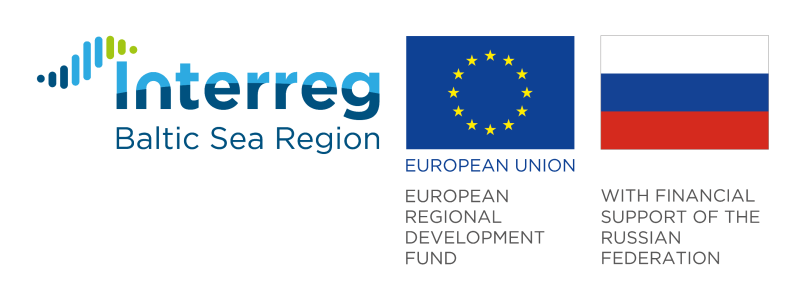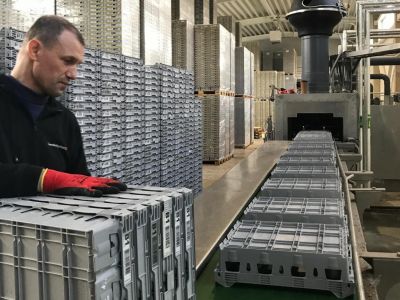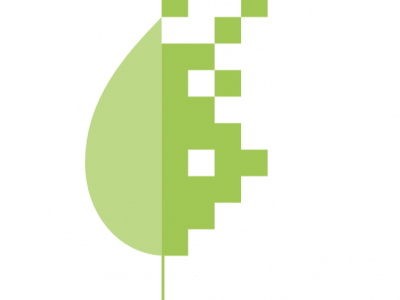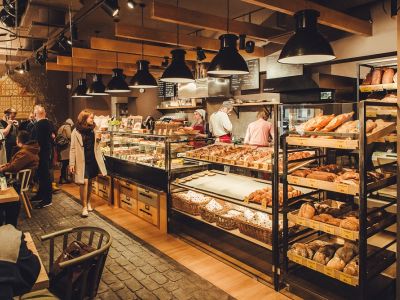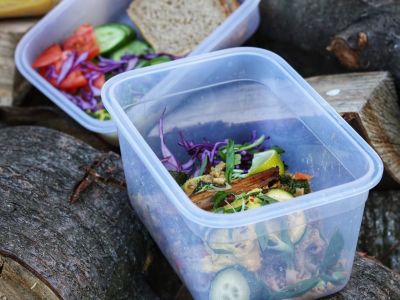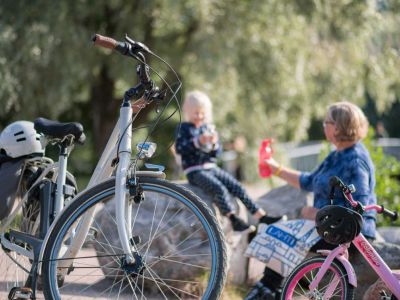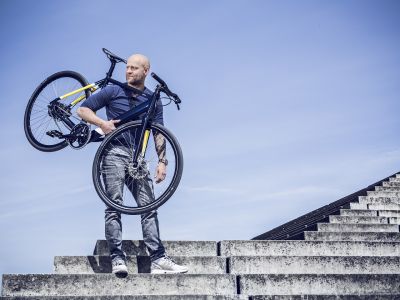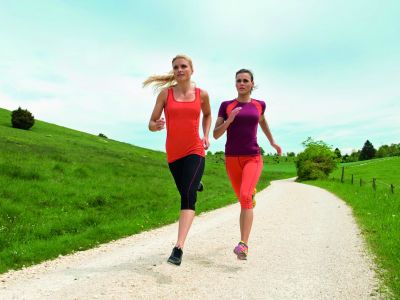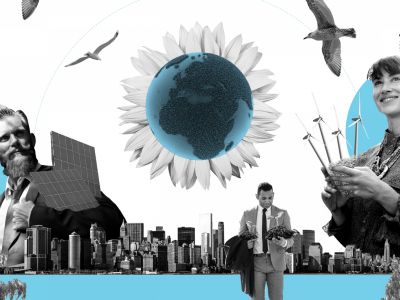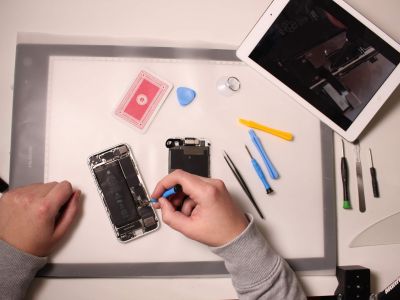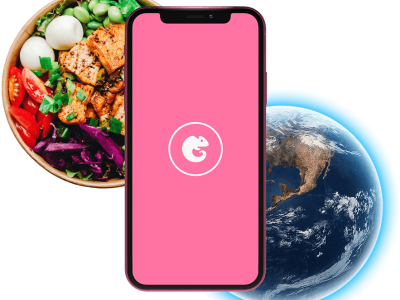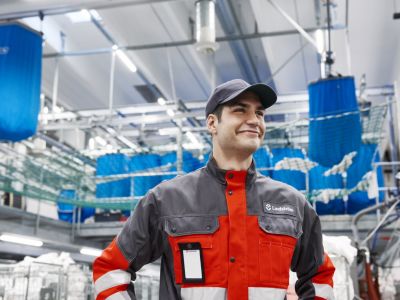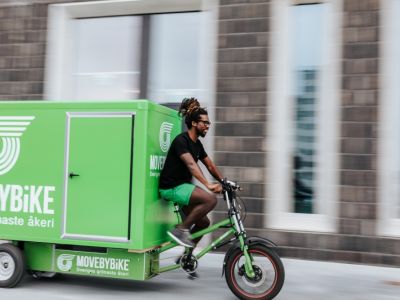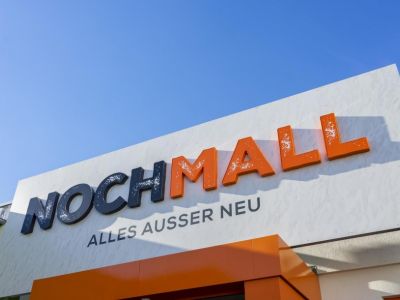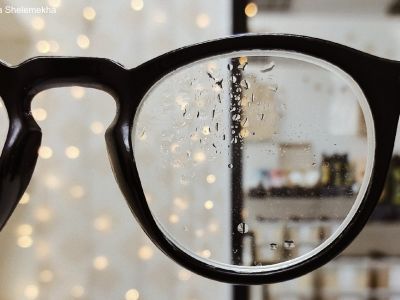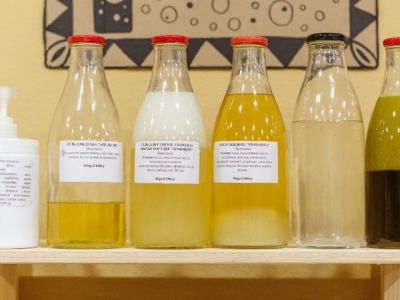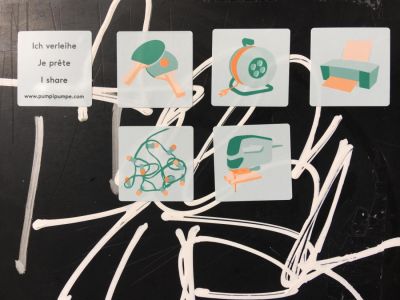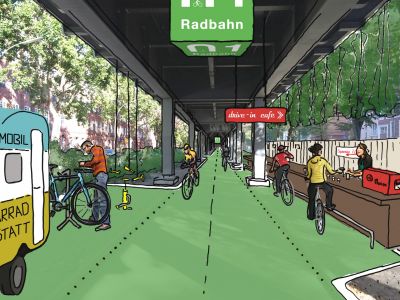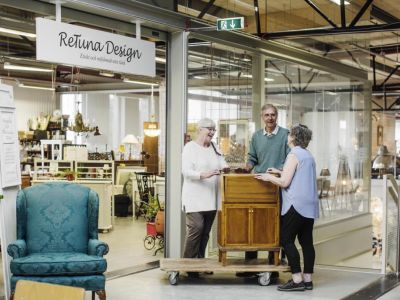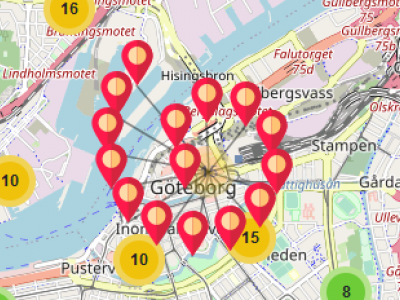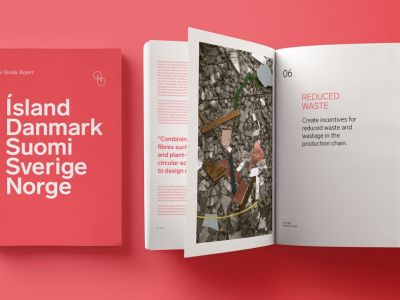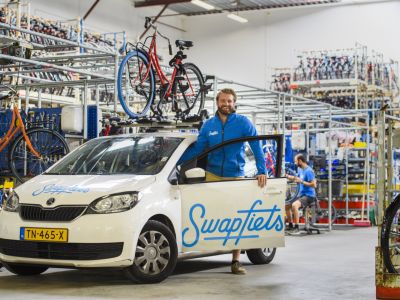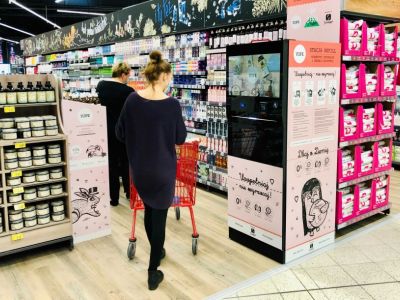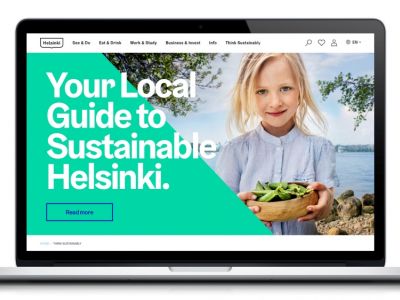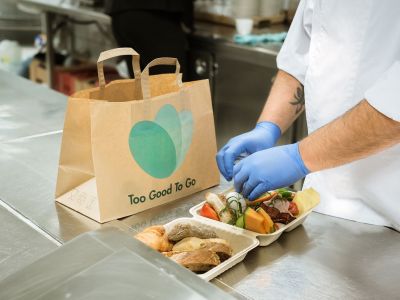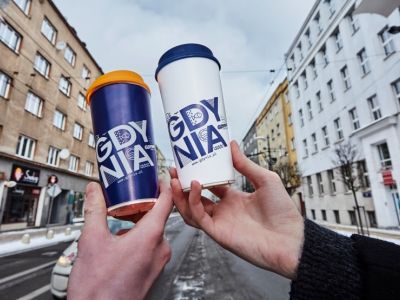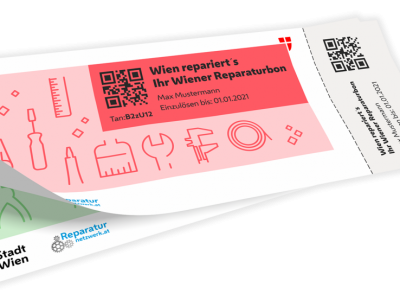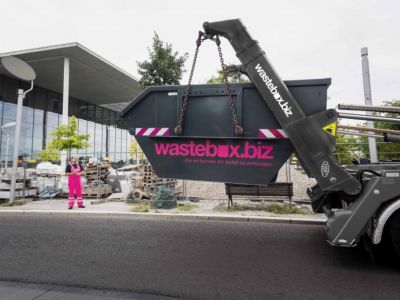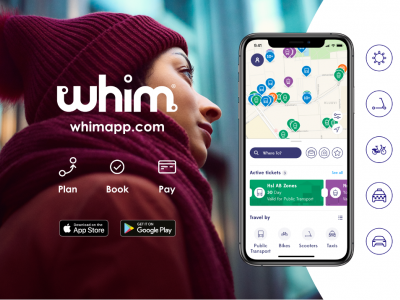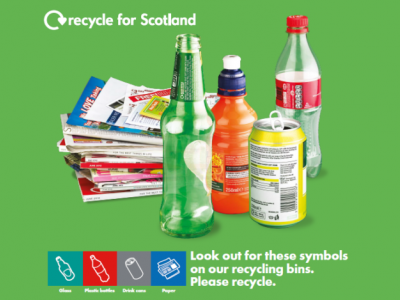![]() Service
Service ![]() started in Switzerland
started in Switzerland ![]() A circular society
A circular society
picture on top: Pumpipumpe
Pumpipumpe – A Sharing Community, has been working since 2012 to promote the sharing of everyday objects and thus a more careful use of our resources, more sustainable consumption patterns and more social interaction in the often anonymous urban neighbourhoods.
Stickers illustrated by Pumpipumpe put on letterboxes show neighbours – where they pass by daily – what you have and what you are willing to lend. Today, more than 24,000 households across Europe offer objects for rent, making freely accessible items visible and usable to their neighbours. The idea is to be able to share less used items instead of owning everything yourself. For our environment, our wallet, for a lively neighbourhood!
Interview with Lisa Ochsenbein, Co-Founder, Project Developer and Product Designer, Pumpipumpe.
What was the starting point for your project? How did your project come about?
We were fresh out of university. I completed my Master’s degree and, together with a fellow student, we wanted to start a company and become self-employed. Along the way, we regularly exchanged ideas: Where do we see potential? What are exciting topics for us that we can also deal with independently of an assignment? And sharing was one such topic!
I moved around a lot during this time and noticed that I often didn’t even unpack many things because, for example, there were already two mixers in the flat-share and I had another one. We realised that we had far too much that we used too rarely. Theoretically, we live very close to each other in an urban area, and there should actually be a lot of these such things in the immediate vicinity. Do we actually have to own it all ourselves? Are there alternative forms of consumption that could change that? Because it doesn’t make much sense financially or ecologically.
In the online sphere, it is often the case that people who are already interested in the topic exchange ideas with each other. That’s why we thought about how we can initiate a sharing community that also reaches different people. That was the point when the idea of the letterboxes came into play. As an interface in real space. Where I can communicate things to my immediate neighbours, who may have a different age or a different political background. It was simply important to us to make something where the communicative aspect in the environment of the direct neighbourhood is very big. And in urban areas, the environment is simply very diverse.
I studied industrial design, so maybe I have a deeper insight into how things are made and what aspects are important in design and development. I started to be bothered by the fact that things like durability and repairability don’t play a role. That people think until the sale, but not further. It depends on the use scenario! If I want to use things intensively, then this usually happens through collaborative use. And that’s why my personal long-term goal would be that when use scenarios change, development is also adapted. That fewer things are produced to be thrown away. That other factors are taken into account.
What was it like when you were studying, around 2012? Was the topic of sustainable industrial design already present?
I personally started to look into the topic and question certain practices. When I was a student, it was not an issue at all at university. It’s different today. It has changed completely. In the beginning, Pumpipumpe was not noticed at all in industrial design circles. Now it is understood as criticism or even the basis for industrial design. And partly even perceived as a political commitment to express an attitude that one represents as an industrial designer.
How did the name “Pumpipumpe” come about?
We implemented the project spontaneously and didn’t want anything with “share” in the name. It’s a little play on words in German Pumpipumpe, meaning share a pump. And we didn’t know at the time how far the project would develop. At the time, we thought of it for a certain neighbourhood in Bern, Switzerland, where we started, and the name has stuck ever since. For other regions it might sound a bit strange though.
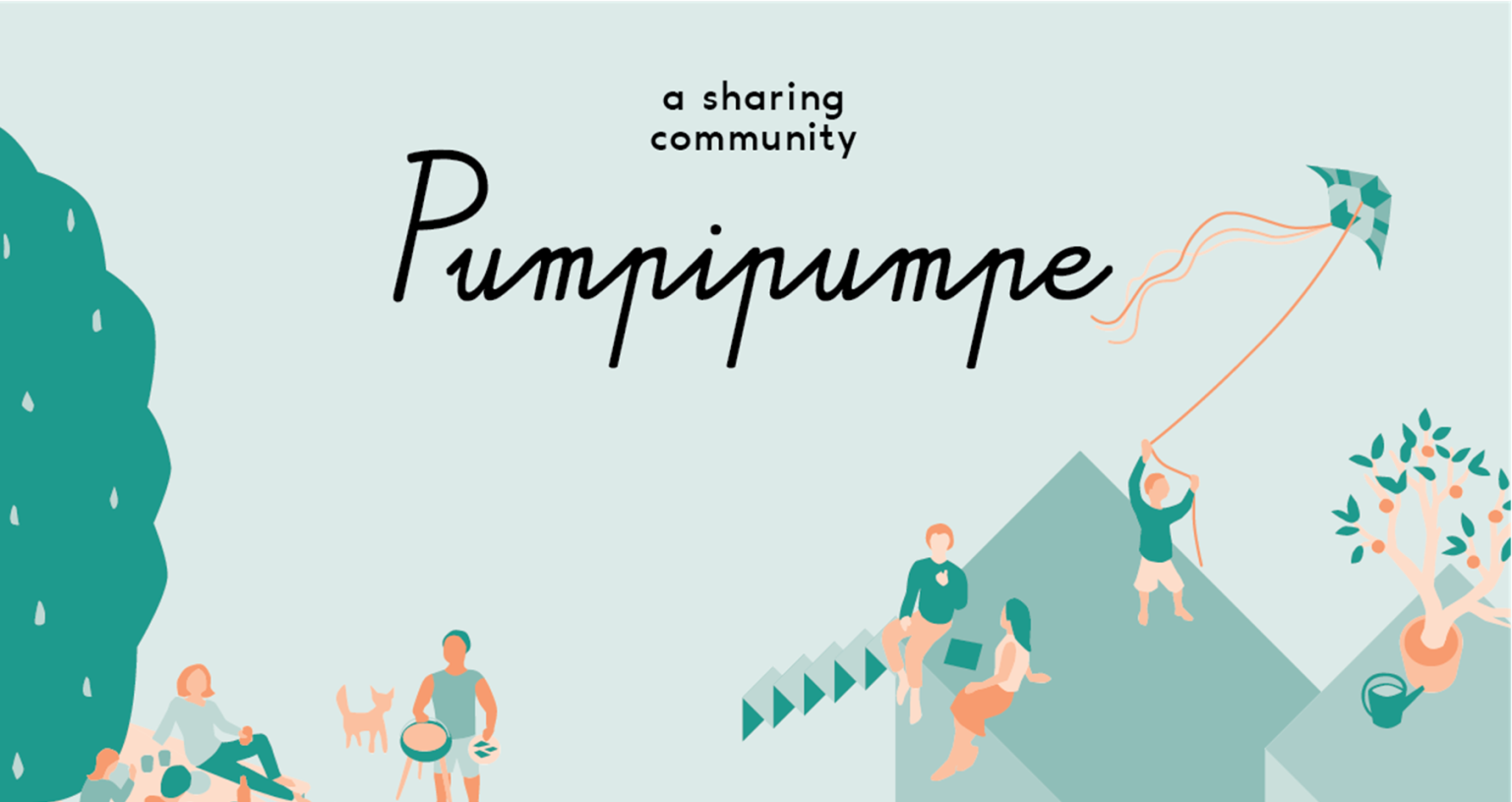
picture: Pumpipumpe
Pumpipumpe has spread to France and especially to Berlin. How did it come about that it took this development, and what helped it?
That’s quite exciting. We have never done any kind of advertising. And we’ve only recently got someone involved in communications for Pumpipumpe. The project has received a lot of attention in the media from the very beginning. I think it was one of those topics that has experienced a particular upswing since then and therefore has attracted a lot of interest. That was our luck and that helped us a lot.
How did the media find out about it?
The first media report was in a local journal in Bern. It was a journalist friend of ours who had heard about our project idea and was on his way to report on the neighbourhood where we were working. That was the impetus for us to realise the project right then. We would have implemented the project otherwise, but that was the “kick”. And since then, new requests have kept coming in, and so one article has led to another.
This is very exciting, because many spend a lot of money on marketing and here the story carries itself.
For a long time we had to struggle with too much interest. Because in the beginning we did everything by hand: We sent out all the letters ourselves and filled all the stickers individually. We were really busy on evenings and weekends finishing these letters and then always had stress when another article came out. You could see the effect of a media article directly in the increased demand for stickers.
What have you changed?
We introduced the sticker sheets at some point. At first we didn’t want to, because we thought that everyone should only order the stickers they need themselves. But then we thought that it is actually quite nice that you can give away the rest of the stickers, which eventually also benefits you. For a few years now, a social enterprise has been doing the mailing. This is a company where people work who would not have a chance on the first labour market.
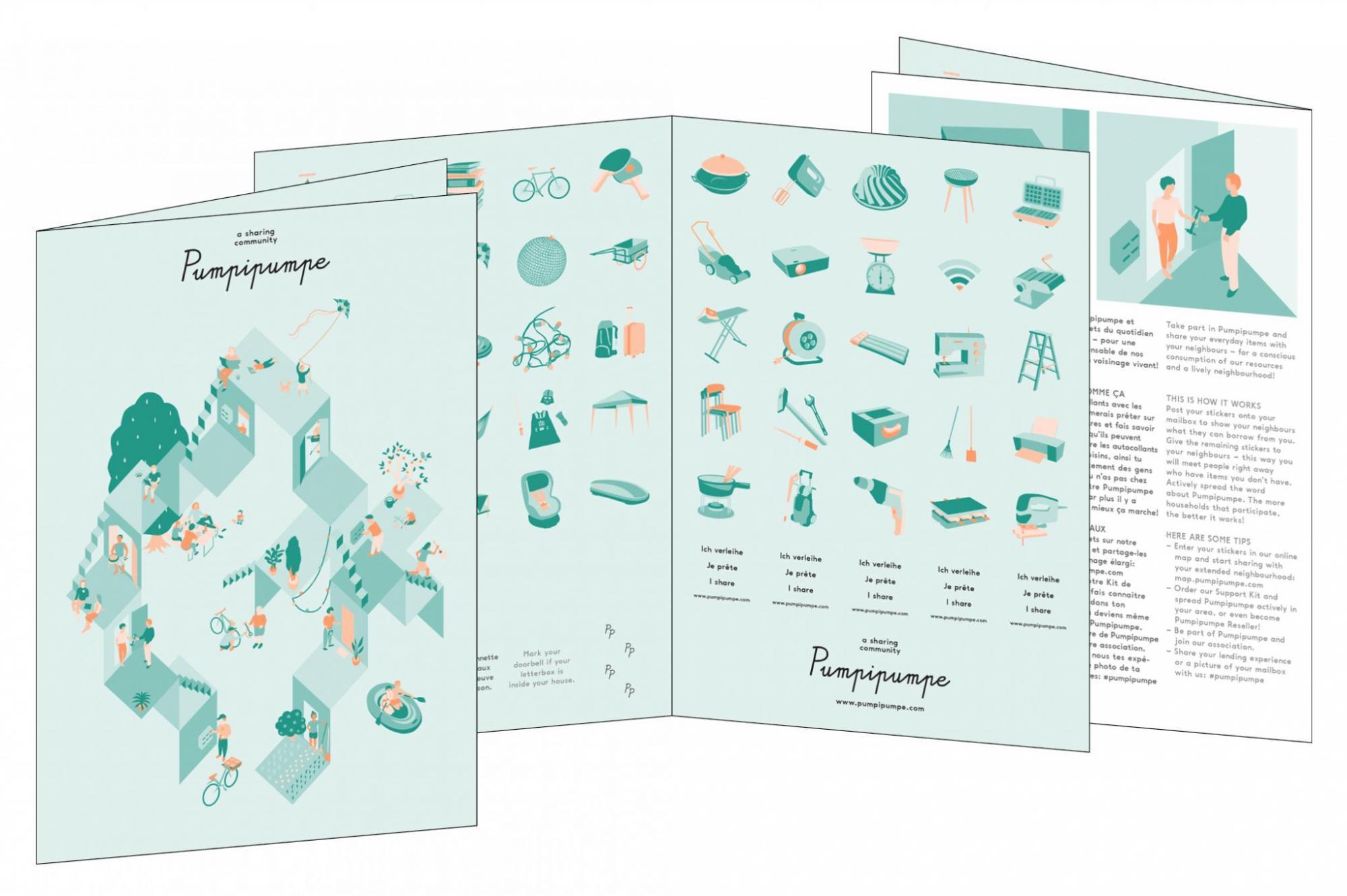
picture: Pumpipumpe
Are there regional differences? Do you know why it works particularly well in some places – like Berlin – and not in others?
It’s hard to say. We don’t really know that much about why there is interest in some places and not in others. We can only speculate.
The University of Zurich has just carried out a research project on Pumipumpe, in which one of the questions was why do people share and why not? And one finding was that people participate in the project for different reasons. There are people who clearly have these ecological motives, who want us to use our resources efficiently and economically. Then there are people who would like more social interaction in the neighbourhoods. Who join in to meet new people. And a third group are people who have little income and whose goal is to consume less, mainly for financial reasons.
The exciting thing is that we started the project primarily out of this ecological motivation and only realised through media interest and feedback that the social aspect is also a central component of the project. We often don’t know our neighbours in an urban district that well, and there are many changes. I think together with this digital development it is exciting to see what is the value of local, analogue and very diverse networks.
My personal opinion is that these networks are becoming more and more important in contrast to these bubbles in the digital world, where there is simply very little friction. To really stay in touch with people who have completely different mindsets, who are from a different generation. I think that’s totally important and that’s something we want to promote. In the future, even more people will live in cities. How can we benefit from each other?
Do you also get personal stories about whether and how “Pumpipumpe” works?
Because we decided that it should work as simply as possible, we now have the disadvantage that we cannot trace the individual transactions or “sharing histories”. That is of course a great pity for us. We are still waiting for the big love story. Sometimes individual people also get in touch who are disappointed because no one ever came by. I believe that much more could still happen. The status quo is, I have everything. There has been an increasing understanding in recent years that there are other forms of consumption. That you can consume together, share things. But I think it will take a few more years for that potential to unfold even more. We can only influence future purchasing decisions, and it’s no use now if everyone throws all their things away. This is a slow development toward real behavioural changes and also toward these sharing concepts gaining even more weight in everyday life – away from an ideological idea and toward anchoring it in everyday life.
This is also an aspect that has really strengthened our belief that it is good and important that communication is very central in this project. It’s really about reminding neighbours or people who don’t deal with this topic at all that they need to be reminded of it in everyday life. These are such small steps. Some people are disappointed when not so much is lent out. Then we say that it already has a function that the stickers are stuck on the letterbox. That they bring a certain message into everyday life.
You have now introduced a digital map and taken the step beyond the analogue. How did that come about? Has it taken another push?
We have also discussed this for a long time and have now even expanded the map with a messenger function that people can use to get in touch. Many letterboxes are indoors, especially in Germany, for example. Or the letterboxes are not so easy to see. Or property managers don’t tolerate the stickers. That’s why we often got the feedback that many people would like to lend their things not only to their direct neighbours, but also to the people who live two streets away. That was actually the motivation of the map, that people can also search for things in their own neighbourhood. And many people have then also reported back that, “Oh, there are actually some people in my neighbourhood participating! I always thought I was the only one.” That is also a way of making the community visible. That was also an important function.
But then you always have to explain yourself. Many people think, why stickers at all? For us, that is still the most important part of the project, which cannot be replaced by any digital measure, no matter how good it is. No digital function can reach the people you can reach through the analogue medium. That will always be the case.
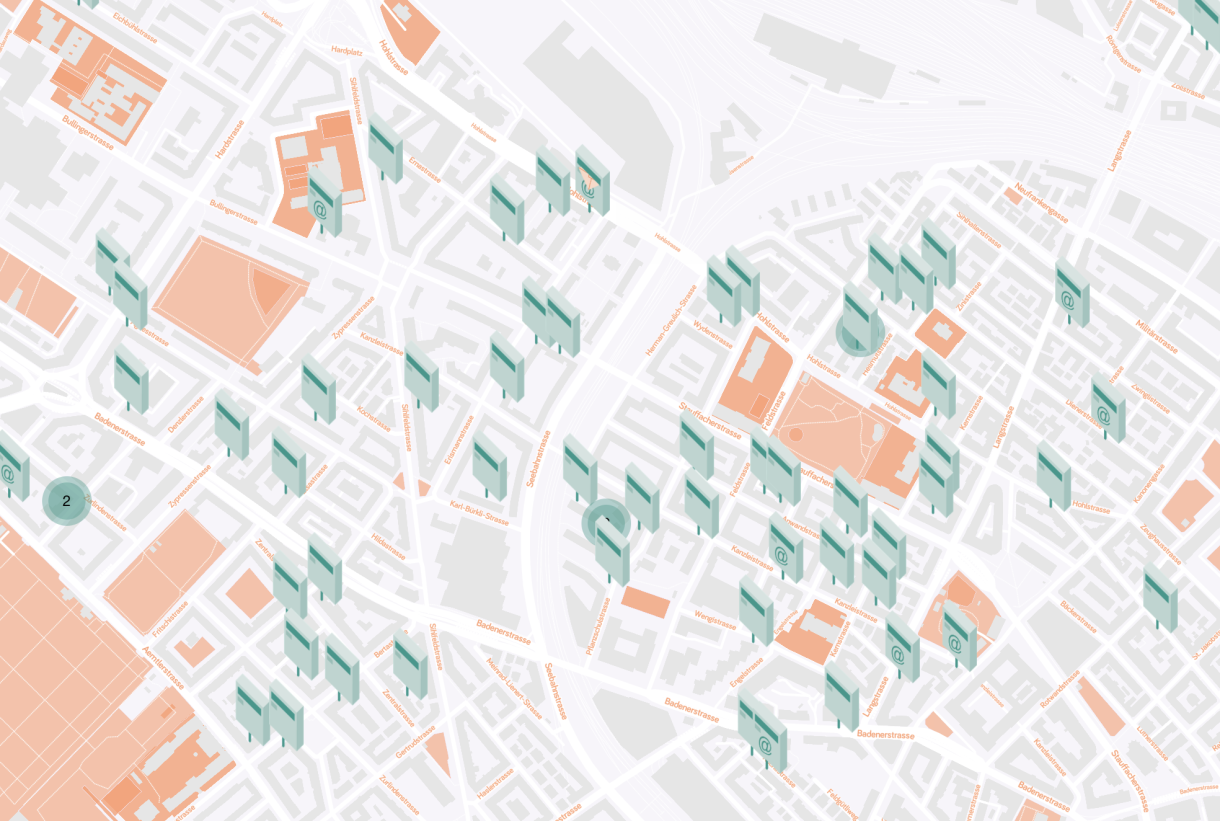
picture: Pumpipumpe
What are you particularly proud of?
That we are still doing the project! We have been involved for almost 10 years now. All of us involved in the project have taken such different paths, professionally but also privately, and have always managed to keep the project involved. We also worked completely on a voluntary basis for a long time and invested a lot of time. In the meantime, we pay ourselves a small compensation because we also have to pay our rent. But I think it’s very nice that we have kept it up for so long and that all the members of the first team are still there and continue to do it.
What is your key message?
– Our offer is circular because we want to encourage people to buy only the things they need often and to borrow the rest. We hope that this will result in people investing in goods that are durable, robust or repairable. And that the poor-quality, non-repairable, cheap mass products will be pushed back.
– Our offer is without comparison because we are the only ones who include the letterbox in this sharing world! In the meantime, however, we have often been copied. We have no objections to that and of course find further initiatives useful.
– Our offer is particularly innovative because we show a lot with very simple stickers: about our consumption patterns, about the potentials in urban space and the potentials of exchange with neighbours.
– Our offer is provocative because now you can say it provokes the property management. It is a call-to-action, to reflection. Maybe one even has to say that it can also provoke many common retailers, because one can simply say: I don’t need this at all, I don’t have to buy everything myself, I can also share this with the neighbours.
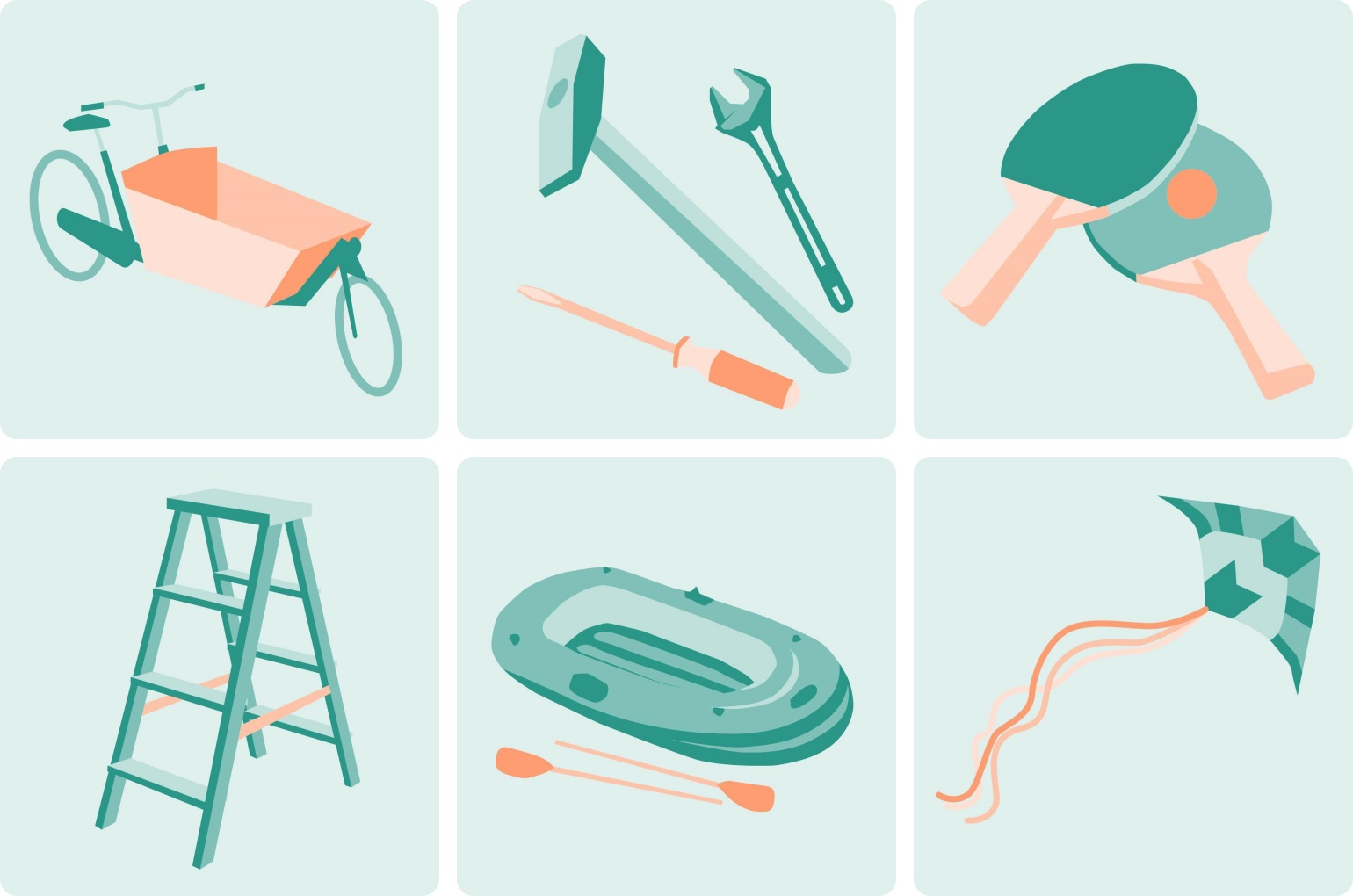
pictures: Pumpipumpe
START OF THE INITIATIVE

Bern, Switzerland — 2012.
LOCATION

You can order the stickers from anywhere in the world. Pumpipumpe has the most users in Switzerland, Germany, Austria and France.
MISSION

Sharing instead of owning!
TARGET GROUP

Pumpipumpe was intended to be as translingual and age-independent as possible. We aim to address a diverse range of users in urban neighbourhoods. However, the project certainly makes more sense in urban regions than in the countryside.
MOST INNOVATIVE ASPECTS

The use of letterboxes (an existing infrastructure) as a personal public interface for easy local communication.
DIGITAL OFFERS

An online map (voluntary registration) to extend the lending, borrowing and search radius, and a new messaging function.
A FEW NUMBERS

Over 24,000 households participate in Europe.
2,000 households participate in Berlin alone.
Tools, books and kitchen utensils are shared the most often. 245 fondue caquelons can be borrowed free of charge in Zurich, and, for instance, 155 pingpong rackets.

